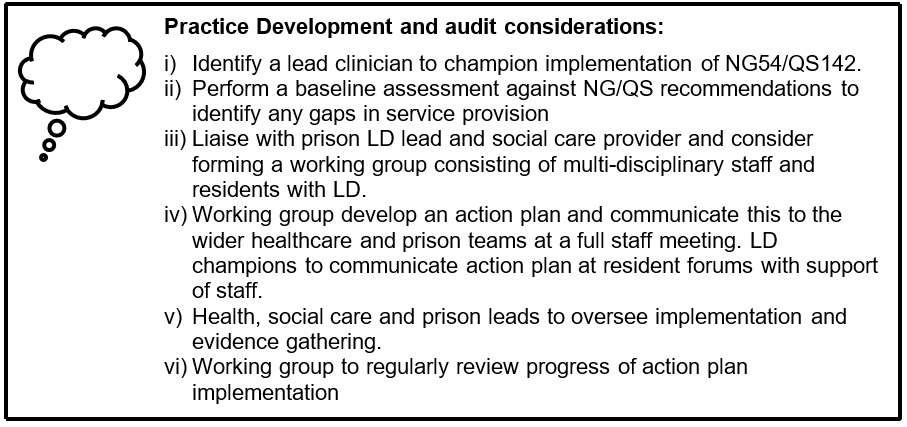Resources for Secure Environments
Providing healthcare in secure environments such as prisons, secure hospitals, young offender institutions and immigration removal centres presents unique challenges for GPs and primary care professional.
Learning and Intellectual Disabilities in Secure Environments
Assessment
National Institute for Health and Care Excellence (2017) Learning disabilities: identifying and managing mental health problems. Quality standard QS142
- There are five quality statements in this quality standard: people with learning disabilities (LD) should have: annual health check, including review of mental health problems
- mental health assessment (if needed) by someone with expertise in mental health problems in LD,
- key worker if learning disability and severe mental illness (SMI)*
- tailored psychological interventions (if required),
- annual documentation of reason for continuing antipsychotic medication (if not stopped).
*SMI: severe depression/anxiety impacting on functioning; psychosis; schizophrenia; bipolar disorder; eating disorder; personality disorder; schizoaffective disorder
NICE guideline: NG54 (2016) Mental health problems in people with learning disabilities: prevention, assessment and management.
The guideline contains advice about communication, capacity, annual health checks and behaviour changes that may assist identification of a mental health problem in a person with LD. It covers assessment with appropriate expertise, and the need to be aware of physical health, sensory or cognitive problems either masking or underlying a mental health issue. It identifies the importance of using adapted or specific tools, risk assessments that include identification of vulnerability and the need for safeguarding protocols, and risk management plans that set out individual, social and environmental interventions to reduce risk. It outlines what should be included in a mental health care plan, adaptations to and specific psychological interventions, pharmacological interventions (to be started only by specialists in mental health/LD) and occupational interventions.
